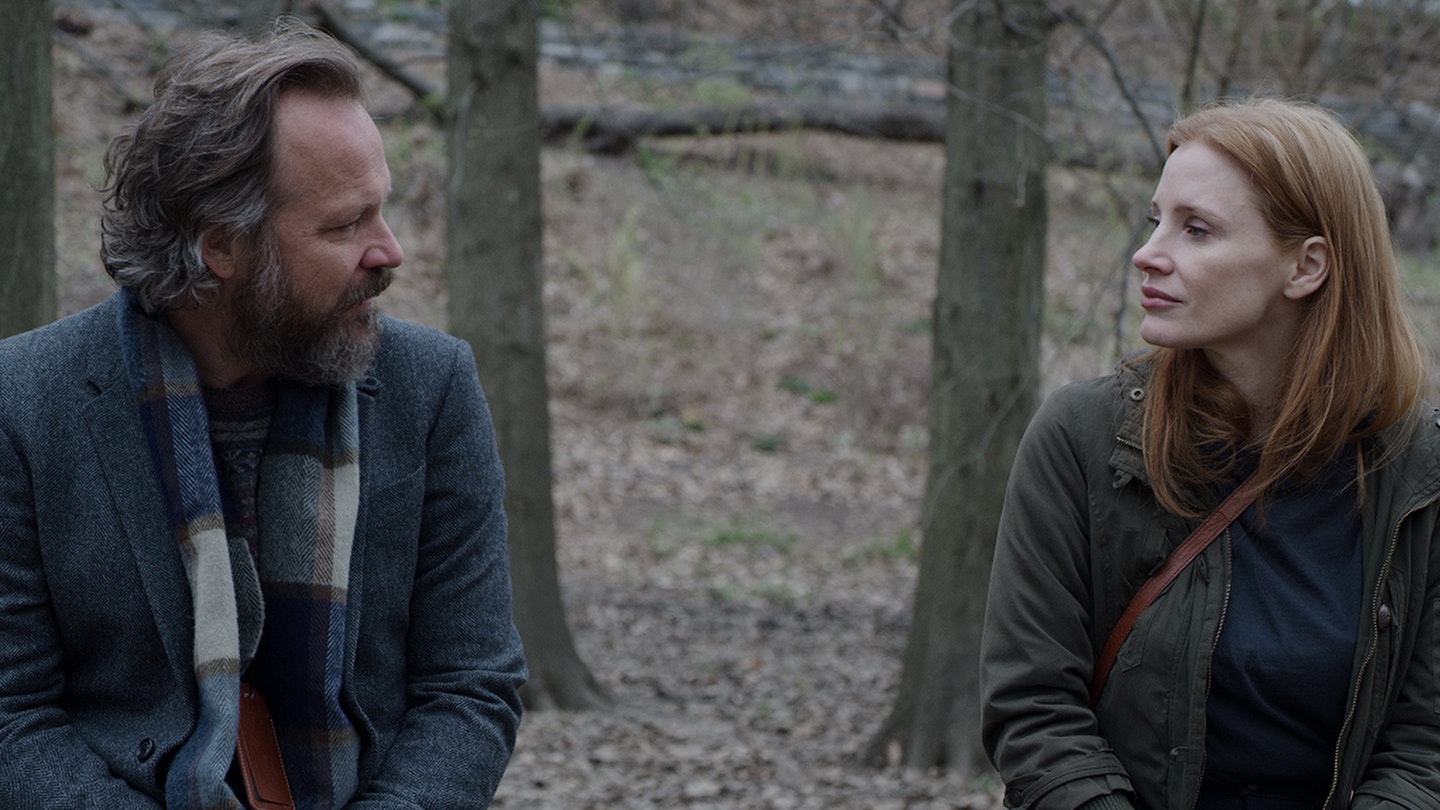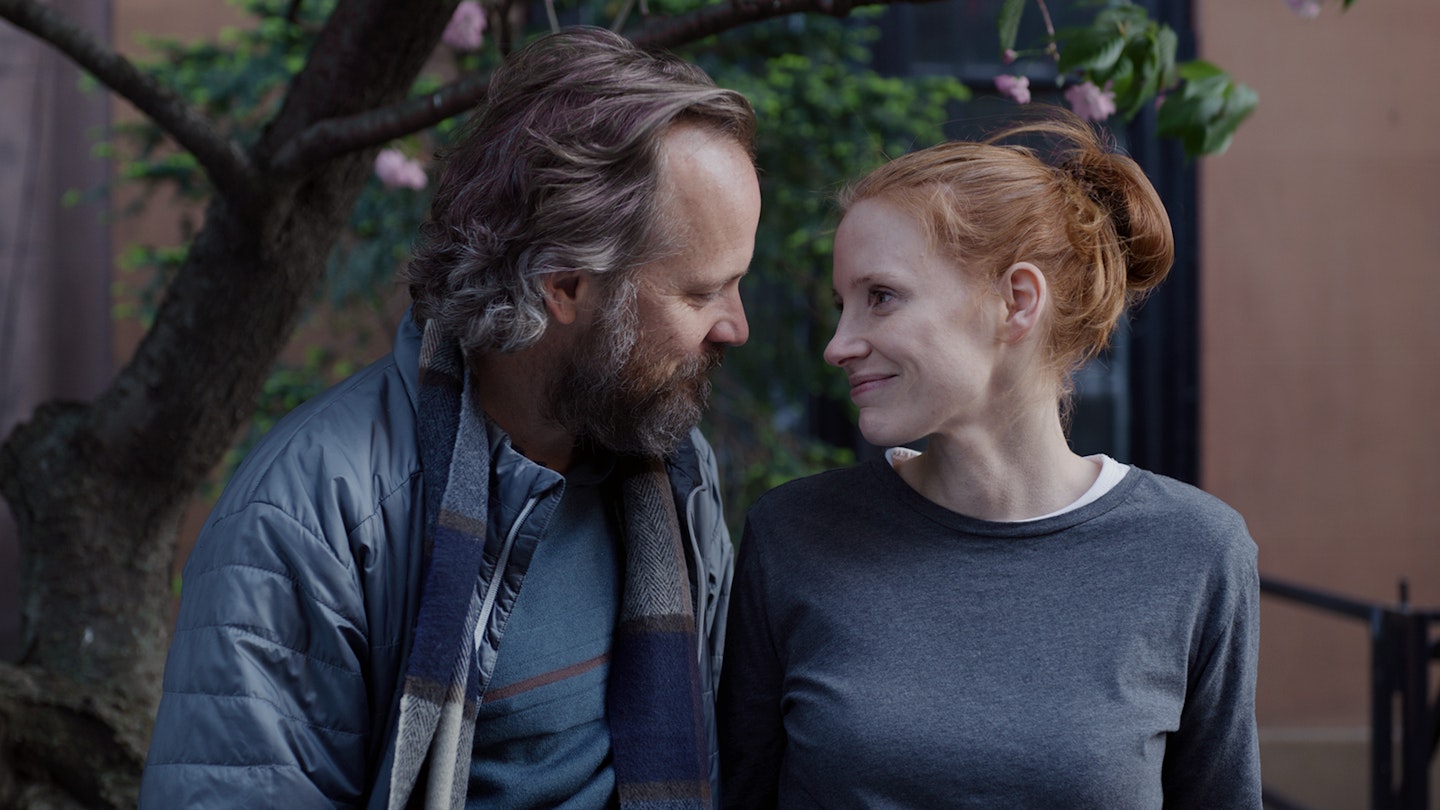Despite the fact that Michel Franco’s new film focuses on an alcoholic grappling with the lingering effects of child abuse, Memory may well be his most buoyant work yet. The Mexican director, known for his violent and unforgiving plots (After Lucia, Chronic), is often considered something of a cinematic sadist who enjoys inflicting as much pain as possible onto his characters. This time, however, his trademark brand of screen cruelty finds a more optimistic narrative — almost feel-good in its theme of redemption.

That isn’t initially clear when we’re first introduced to Sylvia (Jessica Chastain), a recovering addict who works with adults living with learning disabilities. With a grim- set expression, her life is elaborately planned: AA meetings, a stern approach to childcare duties, a Fort Knox-like alarm system to protect her house. After meeting a kind but disoriented ex-schoolmate named Saul (Peter Sarsgaard), Sylvia’s walls slowly come down... only to show us just how deep the roots of abuse can grow, tangling and tugging below the surface.
Memory feels so compelling precisely because it keeps its cards close to its chest.
Franco has, rather unexpectedly, made a shrewd movie about the precarity of healing from trauma. Sylvia’s frequently cruel demeanour — “You deserve to be the way you are,” she says to Saul, abandoning him in the woods without his Emergency Contact lanyard — proves how the path of recovery can morph into quicksand at the slightest perceived threat or trigger. Sylvia isn’t a perfect victim, but someone whose past has hardened her into a contradictory figure that often goes against the grain.

Opposite Chastain, Sarsgaard is equally worthy. Saul’s dementia is not presented purely as a form of suffering, but is instead something that can enhance his capability for empathy; when Sylvia discloses a painful memory to him, he asks her permission to write it down so that he doesn’t forget — just one of many moments that twangs at the heartstrings. Instead of having him monologue about his condition, we get astute directorial touches instead: Saul first enters the frame out of focus, and later is speaking but framed from the neck-down — canny choices to highlight his cognitive blur, the separation between mind and body. Is he lovesick? Is he trapped in a hazy brain-prison of looped thoughts? Or is that sort of the same thing, sometimes?
Many films that deal with similar themes to this can come across as cheap in the way they reach for tear-jerking moments. But save for some moments of unnecessary exposition, Memory feels so compelling precisely because it keeps its cards close to its chest.
